|
|
|
|
Sum 2014 | Issue #3
Tuesday, September 9, 2014
|
|
|
From the Dean
|
 |
| |
Welcome back. I trust everyone has had a productive summer. For me and others involved with the Destination Project, we have been engaged in the pre-design stage for the new science building. Every month over the summer, we have met with the architects for a Super Week of brainstorming and vigorous discussion. This will be an important project as we progress toward becoming a more fully comprehensive university.
Now I am trying to turn my attention to other things, like writing a paper for a conference. I also started reading Derek Bok’s (former president of Harvard) latest book, Higher Education in America
(Princeton and Oxford, 2013). In chapter two (pp. 28-43) Bok summarizes the multiple aims universities and colleges have taken on over the last century and half. Until the Civil War, according to Bok, most colleges in the United States had one aim: to educate the elite for learned professions and positons of leadership. On this point, one should review the Yale Report of 1828, which is regarded by scholars as a “disquisition on the meaning of Liberal Education against the backdrop of rapid economic change and transformation” (Lane 1987: 326). In a subsequent column, I would like to discuss the Yale Report and what it means for us today. According to Bok, universities, particularly comprehensive universities, have taken on five distinct aims, which can be complementary but can often compete for resources and create a degree of tension within the university. The first aim is
to prepare students for a useful occupation, which was a response to the rapid industrialization in the United States after the Civil War. The second aim was “an explicit emphasis on research”, initiated by John Hopkins, which in 1876 founded the first graduate school dedicated to research and training students for careers in the Academy. In short order other universities quickly followed suit. The third aim “grew out of the earlier effort to educate the elite”, namely the role of “cultivating the minds of undergraduates through well-rounded, liberal education” (29). In recent decades two other aims have gained importance. Universities have increasing been called upon to offer specialized knowledge, technical advice and expertise to various types of organizations, whether businesses, government agencies or school boards. The final aim, particularly
for research universities, is to become centres of knowledge transfer, that is, incubators, which will encourage economic development, locally, regionally and nationally.
This more or less captures the current state of the University of Lethbridge, which for better or worse (?) has evolved from an undergraduate institution that was more singularly focused on providing liberal education into a comprehensive university that has several different mandates. According to Bok, “the different aims [of a university] often complement one another to produce a whole greater than the sum of its parts” (31), and universities can benefit “from the synergies derived from pursing several goals at once” (32); graduate programs, for instance, can strengthen and enhance our research and, if done well, assist in undergraduate teaching, but a strategy of pursuing multiple aims, Bok suggests, is not without its risks, and often these various aims can run at cross purposes and come into conflict: there can be tension (and not necessary of the creative
kind) between teaching and research, between practical training and broad liberal education, or between knowledge transfer and basic research. As universities take on multiple purposes, there is the added pressure to grow and add new programs. And this kind of “mission creep” tends to be expensive (36). Consequently, a “multiversity”, to use Clark Kerr’s term, must be “clear about [its] purposes and priorities so that they can concentrate on important activities and avoid taking on unnecessary responsibilities” (34). And in so doing, there is the temptation to adapt goals that are exclusively, objective and measureable, though such objective measures do not always measure true quality. As Bok notes, “some of the essential qualities of academic institutions-in particular, the quality of education they provide-are largely intangible and
their results difficult to measure” (43).
Bok’s book has cast my thoughts back to something I read two or three summers ago: Jim Collins’ Good to Great: why some companies make the leap and others don’t
(New York 2001). It may seem odd that I should reference a book about successful businesses and what it took for them to break out and become great, but this book has influenced my thinking about leadership and the need to be focused as an institution. And so I want to speak to both of these points. Leadership, I think, is important for success in any organization as it sets the tone and direction. In the case of businesses which moved from being simply good at what they did to great, the leaders were never quite what you would expect. In all cases they displayed “extreme humility with intense professional will” (21), and were at the helm when their organizations made the transition from good to great. They are what Collins calls Level 5 leaders, who build “enduring greatness through a paradoxical blend of personal humility and professional will” (20). As Darwin
Smith, long-time CEO of Kimberly-Clark, was quoted saying, as he reflected back on his many years of success, “‘I never stopped trying to become qualified for the job’” (20). I often feel this way myself.
It is not that these leaders lacked ambition, but their ambition was channeled into their institutions; they were keen to see their companies succeed into the next generation, never concerned about whether people recognized that “the roots of that success traced back to their efforts” (26). Finally, these leaders set in place standards for lasting success, took responsibility for failings and always gave credit for success to others. What struck me most is that these Level 5 leaders allowed for vigorous debate and were not afraid to be challenged. They surrounded themselves with smart people. They led with questions; engaged in dialogue and debate; conducted autopsies without casting blame, and allowed the truth to be spoken (see chapter 4). Often they created fora or structures within the organization, sometimes outside the regular hierarchy of the organization, where
vigorous debate was allowed and encouraged to flourish, as it was out of these venues that good ideas came to move the organization forward. To me that sounds much like the academy.
Secondly, all these successful organizations were singularly focused. Each hit upon something which they could do better than any other organization. In some cases it meant that they abandoned profitable operations which no longer fit their focus. So for instance, Walgreens’ “breakthrough strategy” was to create the “most convenient drugstores with high profit per customer visit” (92). The concept was simple, and with singular focus, Walgreens set about to replace all inconvenient locations with more convenient ones, even if it meant closing down profitable stores. Warren Buffett put it this way when he spoke about why he was investing in Wells-Fargo, another good-to-great company: “‘they stick with what they understand and let their abilities, not their egos determine what they attempt’” (97).
So what should be our focus as a faculty, which will make us great and distinguish us from our ‘competitors’ in the province, if I can use that term? I am not sure I can say definitively at this point, and perhaps we can’t be so singularly focused, but one danger I do see is that we try to make ourselves into the exact image of larger institutions: we simply imitate the “bigger and better”, something that unfocused “mission creep” can lead to. The result will be only a pale, bland imitation: doing too many things poorly at the expense of doing a few things extremely well. To return to Bok, the challenge for universities, who are under pressure to grow, is defining best or what can make them truly great: “the problem lies in defining ‘best’ by emphasizing the test scores students bring with them when they enter rather
than how much they learn after they arrive, or thinking that research must necessarily matter more than teaching, or caring more about the number of articles professors publish than about the quality and originality of what they write” (38). We often talk about being a comprehensive university founded on the principles of liberal education. Perhaps that should be our singular focus, but I am not even sure we know what that really means or at least have not done a good job of articulating what that means or making that an intrinsic part of who we are and what we do as a comprehensive university. But more on that next time.
Craig Cooper
Dean, Arts & Science
Go To Top
|
|
|
Community Outreach
PUBlic Professor Series
Community outreach is a priority for the Faculty of Arts and Science at the University of Lethbridge. Dissemination of our faculty research expertise to a wider community through programs and activities such as talks, lab visits, youth and family activities, and in-school presentations has been delivered with great success over the years.
In support of this growing agenda, the Faculty of Arts and Science Dean’s Office is proud to announce the establishment of the PUBlic Professor Series. A series of pub-style talks that will be introduced in the Fall 2014 and will be held at the Penny Building from 7:00- 9:00pm on the dates provided below.
These presentations are built on the style of Café Scientifique that started in the late-20th century as an informal discussion about scientific subjects. They were never intended to be lectures. They provide insight into issues of popular interest to the general public, and in turn provoke questions and encourage an open dialogue.
We are still working out the details and more information will follow, but for now, please refer to the schedule below. It is our hope that this will continue beyond this pilot year and as such we will reach out to faculty participants in spring 2015 for the following year.
2014/15 Series Schedule:
25-Sep-14
Robbin Gibb
Theme: Health
Topic: The Forgotten Parent: The Importance of Fathers and Their Experience on the Brain Development of their Children
23-Oct-14
Patrick Wilson
Theme: Culture
Topic: Indigenous Territories and the Rights of Nature in Amazonian Ecuador
20-Nov-14
Ian MacLachlan
Theme: Sustainability
Topic: Global Livestock and Meat Trends
22-Jan-15
David Naylor
Theme: Sustainability; Access/Opportunity
Topic: Why Invest in Space Exploration
26-Feb-15
John Harding
Theme: Culture
Topic: Buddha’s World Tour: Global Buddhism in the Modern Era
19-Mar-15
Michelle Hogue
Theme: Culture; Access/Opportunity
Topic: Two-Eyed Seeing: A Different Vision for Teaching Aboriginal Learners Science and Mathematics
Exploration Expo & ASPIRE
On June 7th, Exploration Expo brought science and research to the community of Lethbridge.
Designed to encourage conversation between all ages and experiences by stimulating people’s minds and passions through inspiring programming, Exploration Expo included a variety of interactive activities that provided hands-on research experiences and introduced methods used by our world-renowned researchers, helping participants see the relevance of research in their community. In addition, U of L researchers engaged the community in a dialogue about their work, encouraging participation from listeners and community members in the resulting discussions.
This inaugural event also served as the launch for our newly-named ASPIRE group. ASPIRE (Arts & Science Programs Inspiring Research & Exploration) is all about bringing the incredible people and research interests we have here at the U of L to the community and encouraging people of all ages to explore new concepts through hands-on activities, interactive demonstrations and inspiring presentations.
ASPIRE at the University of Lethbridge will target different disciplines and different age groups in year-round activities with the common aim of promoting ASPIRE and educating children and youth as the leaders of tomorrow. ASPIRE will aim to provide opportunities for experiences, learning, mentoring and enhancing the education experience of all students leading to life-long learning and careers in their chosen field. Through experiential, do-it-yourself science and other activities ASPIRE programming will provide children and youth with opportunities which lead a natural progression towards research and innovation. Using inclusive, cross-cultural activities ASPIRE will inspire, engage and spark the curiosity for lifelong learning in the people of Lethbridge and Southern Alberta.
Exploration Expo is expected to become an annual event, so keep this in your mind for next summer's planning.
August 20 '14 | German exchange students learn research skills at the U of L
For the past few years, university students from Germany have been able to hone their research skills in labs at the University of Lethbridge.
Through the German Academic Exchange Service, Dr. Hans-Joachim Wieden and Dr. Ute Kothe, professors in the Department of Chemistry and Biochemistry, have had German university students work in their labs for up to three months.
August 13 '14 | High school students get a jump on research at the U of L
Six local high school students have been learning their way around University of Lethbridge research labs this summer through the Heritage Youth Researcher Summer (HYRS) program.
The HYRS program gives high school students who are entering Grade 12 an intensive six-week experience conducting scientific research in a university lab. Along with the U of L, the University of Alberta and the University of Calgary participate in the program.
June 18 '14 | Cor Van Raay gives $5 million in support of ag studies at University of Lethbridge and Lethbridge College
One of southern Alberta’s most prominent agricultural entrepreneurs is ensuring that the future of agribusiness and the agricultural sector remain strong through a major philanthropic gift that will benefit students at both the University of Lethbridge and Lethbridge College. Cor Van Raay, the founder of Cor Van Raay Farms and a leading Canadian cattle producer, has donated $5 million to Lethbridge College and the University of Lethbridge, jointly, to establish the Cor Van Raay Southern Alberta Agribusiness Program.
June 11 '14 | University and Red Crow Community College strengthen relationship through MOU
A long-standing relationship between the University of Lethbridge (U of L) and Red Crow Community College (RCCC) has been strengthened through the signing of a memorandum of understanding (MOU) aimed at increasing collaboration between the two institutions. The agreement includes a commitment to seek joint opportunities to collaborate on opportunities pertaining to academic and research initiatives, the sharing of facilities and student supports.
Go To Top
|
|
|
New Appointments
-
Dr. Michelle Helstein | We are pleased to announce that Dr. Michelle Helstein, from the Department of Kinesiology & Physical Education, will be joining the Arts and Science Dean’s Office as Acting Associate Dean from September 1, 2014 to June 30, 2015
-
Dr. Matthew Letts | Dr. Matthew Letts has agreed to serve as the University of Lethbridge's Interim Associate Vice-President (Research) until July 1, 2015.
-
Dr. Ravinder Virk, Geography, Instructor III | One-Year Term; Effective July 1, 2014
-
Ms. Sophia Verzosa, Kinesiology & Physical Education, Instructor III | Probationary Continuing Appointment' Effective July 1, 2014
-
Dr. Kara Granzow, Sociology, Assistant Professor | Two-Year, Initial Probationary (Tenure-Track); Effective January 1, 2015
-
Dr. Sean Fitzpatrick, Mathematics & Computer Science, Instructor III | One-Year Term; Effective August 1, 2014
-
Dr. Jennifer Burke, Biological Sciences, Instructor II | Ten-Month Term; Effective August 1, 2014
-
Dr. Alain Takam, Modern Languages, Assistant Professor | Two-Year, Initial Probationary (Tenure-Track); Effective July 1, 2014
-
Mr. Trevor Armstrong, Co-operative Education , Instructor II | Ten-Month Term, Effective June 1, 2014
-
Dr. Robert Benkoczi, Mathematics & Computer Science, Assistant Professor | Two-Year, Initial Probationary (Tenure-Track); Effective July 1, 2014
-
Dr. Esther de Bruijn, English, Assistant Professor | Two-Year, Initial Probationary (Tenure-Track); Effective July 1, 2014
-
Ms. Francine Young, Modern Languages, Lecturer | Four-Month Term
-
Dr. Jana Archibald, Mathematics & Computer Science, Instructor III | Probationary Continuing Appointment; Effective July 1, 2014
-
Dr. Matthew Krause, Kinesiology & Physical Education, Assistant Professor | One-Year Term; Effective July 1, 2014
-
Ms. Camille Chanvry; Modern Languages - DELF-DALF Centre, Visiting French Language Assistant | Eight and One-Half Month Term; Effective August 25, 2014
-
Dr. Trent Hoover, Geography, Assistant Professor | Ten-Month Term; August 1, 2014 - May 31, 2015
-
Dr. Don McIntyre, Native American Studies, Assistant Professor | One-Year Term; Effective July 1, 2014
-
Dr. Karl Laderoute, Philosophy, Assistant Professor | Ten-Month Term; Effective August 1, 2014
-
Dr. Jean-Baptiste Leca, Psychology, Assistant Professor | Two-Year, Initial Probationary (Tenure-Track); Effective July 1, 2014
-
Dr. Chad Povey, Physics & Astronomy, Instructor III | Probationary Continuing Appointment; Effective August 1, 2014
-
Ms. Carmen Derkson, English, Assistant Professor | Ten-Month Term; July 1, 2014-April 30, 2015
-
Dr. Jonathon Penny, Academic Writing Program, Instructor III | Ten-Month Term; August 1, 2014-May 31, 2015
-
Dr. Nehal Thakor, Chemistry & Biochemistry, Assistant Professor (CAIP Chair) | Two-Year, Initial Probationary (Tenure-Track); Effective September 1, 2014
Go To Top
|
|
|
Course Highlight
Liberal Education 2850A
First Year Experience: Mapping Our Communities
This course was piloted in Spring 2013 under the instruction of Jan Newberry and was offered again in Spring 2014 by Shelly Wismath The course evolved from the Recruitment and Retention Project, and aims to help first year students make the transition to university in a number of ways. Using mapping and map-making as metaphors, the course is designed to introduce students to the university as a physical and academic space, and to help them negotiate their membership in both academic and social communities. This includes introduction to the many resources available for student support on campus, to the liberal education philosophy of the University of Lethbridge, and to a number of the best teachers on campus as guest lecturers in the course.
The first offering in Spring 2013 had a cap of 24, and 18 students finished the course. In Spring 2014 the limit was set at 50, and the final enrolment was 49. This large increase in enrolment was due to wide promotion, strong support from the A/S advisors, and word-of-mouth support from the previous offering. For the various activities and final project, students worked in 6 teams of approximately 8 students each.
Student feedback shows the course has been very successful in meeting its goals of introducing students to the university community in various aspects, including the campus, support resources and academic networks. The students speak very highly of activities such as the Amazing Race exercise, the visit to a professor’s research lab, the “What do I do if” assignment, and the guest lectures. From a recruitment and retention point of view, students speak eloquently about the feelings of community they have developed. The following quotations from student essays illustrate this:
"This class has been extremely helpful in getting to know the campus, the professors, the various faculties, and how the university functions as a whole. Without a doubt I will use several of the resources I will be taking away from this course, not only during my stay at the U of L but in my everyday life beyond university. This is a wonderful, informative and fun course, and I would suggest it to anyone considering taking it."
"I felt that this course has definitely changed the way I think about the University of Lethbridge. It has made me feel more a part of the university community and more confident in myself as a student. The skills I have learned in this class will stick with me throughout the rest of my university career and possibly in my future careers."
For more information, contact Shelly Wismath.
Go To Top |
|
|
Research Round-up
August 28 '14 | Achievements of women in physics celebrated at international conference
Women are still a minority in the field of physics but every few years they come together from all parts of the world to celebrate their achievements, exchange ideas and discuss ways to address the gender gap.
Drs. Arundhati Dasgupta and Adriana Predoi-Cross, both professors in the Department of Physics and Astronomy at the University of Lethbridge, were among more than 200 scientists from 52 countries to attend the conference.
August 7, 2014 | University of Lethbridge researchers show that stress during pregnancy has generational effects
Dr. Gerlinde Metz and her team's research provides a platform for further studies into predictors of preterm births.
August 1, 2014 | Doctoral student looks to understand Samoa's trend-bucking population growth
Deanna Forrester is investigating why fertility rates in this South Pacific nation differ from those in most other developing nations.
July 22 '14 | Kazemipur book examines issues Muslims face while living in Canada
Kazemipur shows that Muslims in Canada seem to have less difficulty with Canadian public institutions and media than in other countries, but face major difficulties integrating into the Canadian economy and entering the social mix.
July 11 ' 14 | Potato Growers of Alberta, partners, create new research Chair
Research capacity in Alberta’s potato industry will be significantly enhanced due to a $1 million investment in the University of Lethbridge by a consortium of association and industry partners.
The U of L will receive the funds over five years from the Potato Growers of Alberta (PGA), McCain Foods, ConAgra Lamb Weston and Cavendish Farms to establish a Chair in potato science.
June 26 '14 | U of L researchers combine to earn $1.8 million in NSERC funding
A total of 12 University of Lethbridge researchers will receive funding from the Natural Sciences and Engineering Research Council of Canada (NSERC) this year, enabling future U of L discoveries in a variety of areas including neuroscience, biological sciences and chemistry and biochemistry.
June 18-21 '14 | Prestigious RNA research conference at the UofL
Leading investigators in the emerging field of Ribonucleic acid (RNA) research – including a Gairdner Foundation International Award recipient – gathered at the University of Lethbridge, June 18-21, 2014, for one of Canada’s most prestigious conferences. The conference attracted over 100 researchers and students – including 40 principal researchers. One of the highlights of the conference was a keynote presentation by Gairdner award winner Dr. Joan Steitz – a Yale researcher who is a pioneer in the RNA field. For more information, visit the RiboWest 2014 website.
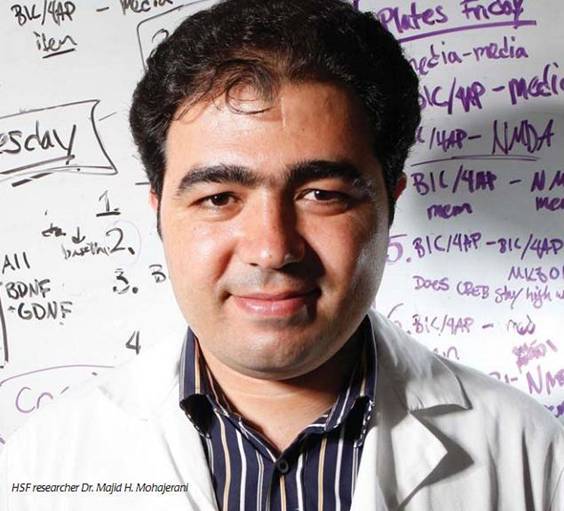
May 12 '14 | Neuroscience research capacity boosted by addition of Mohajerani
The University of Lethbridge has added to its internationally recognized research capacity in neuroscience by appointing Dr. Majid H. Mohajerani as the new CAIP Chair in Brain Health and Dementia. Dr. Majid Mohajerani comes to the University after serving as a research associate at the International School for Advanced Studies in Trieste, Italy.
Mohajerani is the third of four new research Chairs being added to the University as part of the Government of Alberta's Campus Alberta Innovation Program (CAIP) Chairs plan. Last year, aquatic health expert Dr. Greg Pyle and remote sensing researcher Dr. Chris Hopkinson were attracted to the U of L through the program.
Apr 25 '14 | A closer look at anti-vaccination sentiment
Graduate student, Jillian King, (BASc ’12, having previously completed a bachelor’s degree in psychology and religious studies) is exploring the decisions of some families living in or near Lethbridge about whether or not to immunize their kids against diseases such as measles, mumps, rubella and other preventable infectious diseases. She is interested in the attitudes of pro- and anti-vaccination families, and in the biomedical alternatives being pursued by those in the latter group. In her research, Jillian King has learned that the proportion of Albertans who are adequately immunized has consistently fallen below provincial targets for years.
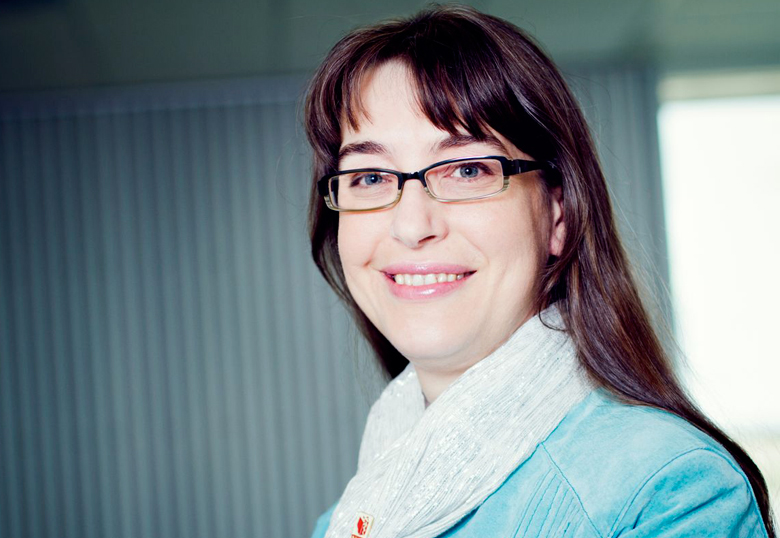
Apr 22 '14 | Touch therapy helps brains recover following stroke
New research out of the University of Lethbridge has found that rats exposed to prenatal stress that then experienced a stroke in adulthood suffered more severe motor disabilities compared to rats that experienced only a stroke. Dr. Gerlinde Metz says it has been encouraging to see the positive impact of tactile stimulation.
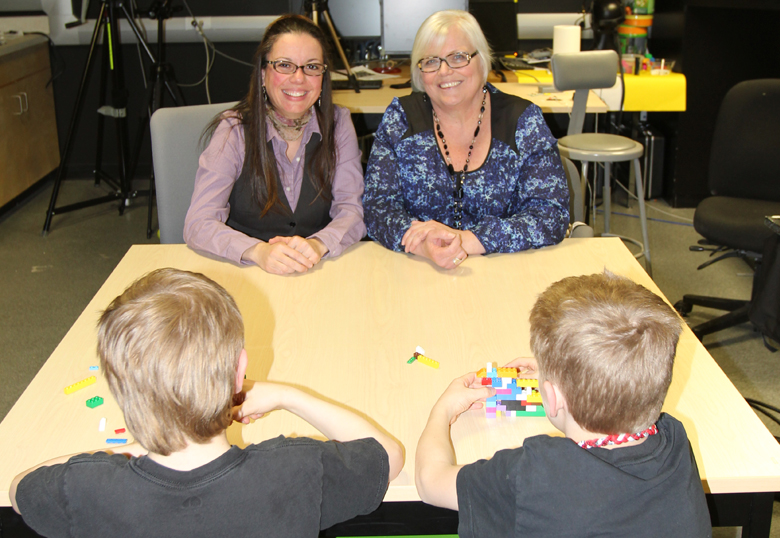
Apr 8 '14 | Research team links hand preference in children to executive function
Children who have a significant hand preference may have better behavioural control, memory and planning skills, according to a new study published by a team of researchers at the University of Lethbridge. Drs. Claudia Gonzalez, left, and Robbin Gibb are working to formalize the working relationship between kinesiology and neuroscience.
Apr 7, '14 | New agreement to bring Mexican graduate students to U of L campus
The University of Lethbridge has reached an agreement with Mexico’s national council of science and technology that will see fully-funded Mexican graduate students study at its campus.
Under the agreement, Mexican students who are accepted and enrolled in a master’s or PhD program at the U of L will have a significant portion of their tuition fees and living expenses paid for by the National Council of Science and Technology of the United Mexican States (CONACYT).
Additionally, the agreement will open the door for Lethbridge and Mexican master’s and PhD students to participate in fellowship visits that will last up to one year. These visits are for the purpose of allowing Lethbridge and Mexican students the opportunity to acquire expertise in specific research projects.
Mar 28 '14 | McDaniel's SSHRC study reveals no evidence of labour shortage
The results of a Social Sciences and Humanities Research Council (SSHRC) Knowledge Synthesis Grant, of which the University of Lethbridge’s Dr. Susan McDaniel was the principal investigator, reveal that Canada is not confronting a broad labour shortage, nor is a shortage anticipated in the near future, as some have been predicting. McDaniel has recently been named as one of Alberta Venture's 50 Most Influential People. Read more about this here.
Mar 26 '14 | Spencer seeking a view like no other
The history of human exploration is full of discoveries that were made in person, from finding new lands to touching the ocean floor. At the University of Lethbridge though, researcher Dr. Locke Spencer (MSc ’05, PhD ’09) is developing a sophisticated instrument that’s meant to do what humans cannot: investigate the most far-flung and inaccessible area of the final frontier.

Mar 21 '14 | Rasmussen getting to heart of oilsands questions
What’s the best way to monitor and manage the environmental impact of the oilsands? This is a question that strikes at the heart of Dr. Joseph Rasmussen’s research. A professor of biological sciences at the University of Lethbridge, Rasmussen holds a Tier I Canada Research Chair in Aquatic Ecosystems and is director of the University’s Water Institute for Sustainable Environments (WISE). There, researchers are studying water resources, including natural science analyses of watersheds, and water quantity and quality, and investigating associated issues, such as water policy and economics.
Mar 20 '14 | U of L becomes first Canadian member of international water council
The University of Lethbridge has become the first Canadian member of the Universities Council on Water Resources (UCOWR) – an organization of universities, non-academic institutions, and international affiliates leading the way in water resources education, research and public service.
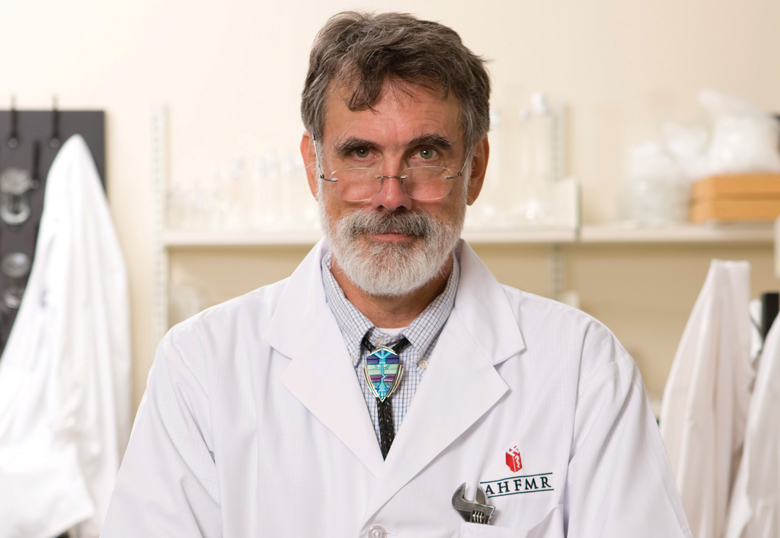
Mar 14 '14 | Neuroscience collaboration to boost research capacity on both sides of border
An agreement has been struck that will see renowned neuroscientist Dr. Bruce McNaughton splitting his time between the two campuses over the next four years, leading the development of an international exchange program between two world-class centres of brain research excellence.
Go To Top
|
|
|
Special Mentions

July 4 '14 | McDaniel among Alberta Venture's 50 Most Influential People
Dr. Susan McDaniel's research into labour shortages in Canada led to some myth-busting that earned her a spot on Alberta Venture’s 50 Most Influential People for 2014.

June 11 '14 | Tanya Harnett elected to the Royal Canadian Academy of Arts
The Royal Canadian Academy of Arts Membership Committee found Tanya's work to be of a very high quality. Tanya will be formally inducted into the Academy at the RCA’s Annual General Assembly, during the Presidents’ Dinner in May 2015, in Montreal, QC.
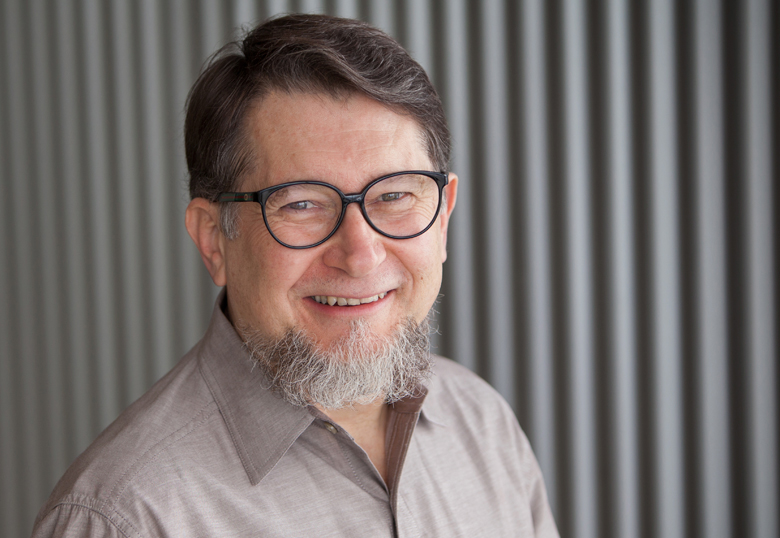
May 27 '14 | Influential researcher Pellis earns Ingrid Speaker Medal
Dr. Sergio Pellis’s influential research on animal behaviour and behavioural neuroscience has received international recognition. It has also earned him accolades at the University of Lethbridge, where he was named the 2014 winner of the Ingrid Speaker Medal for Distinguished Research, Scholarship, or Performance.
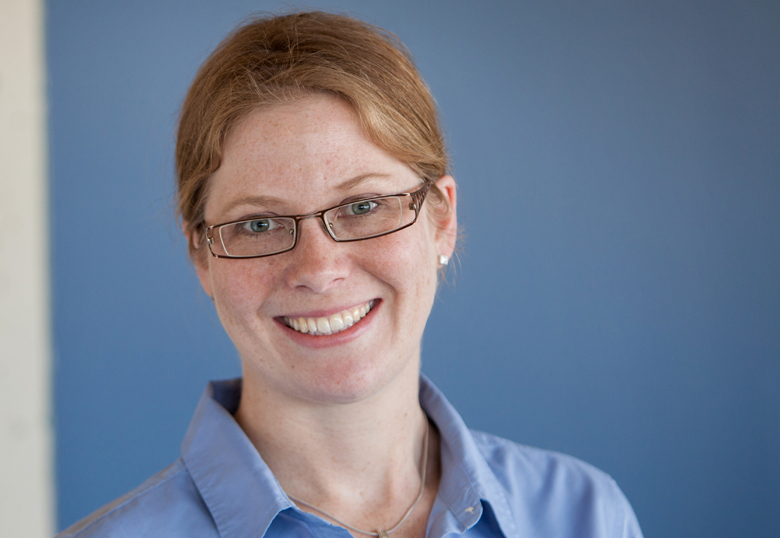
May 26 '14 | Kothe earns 2014 Distinguished Teaching Award
Biochemistry professor, Dr. Ute Kothe, has made outstanding contributions to teaching at the University of Lethbridge and beyond and has been named the recipient of the 2014 Distinguished Teaching Award. Dr. Ute Kothe excels at motivating students in her biochemistry classes and is routinely rated highly in student evaluations.
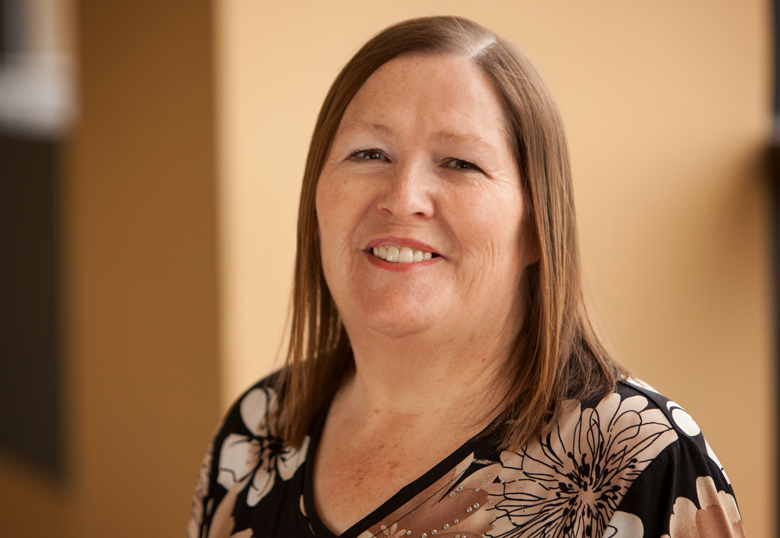
May 26 '14 | Margaret Cook earns President's Award for Service Excellence 2014
Margaret Cook, administrative assistant in the Departments of Geography and History, personifies service excellence and models professional and ethical behaviour for all. Cook has been administrative support for five different department chairs. She has adjusted to the different styles of the chairs, and has helped them immensely by taking the initiative to anticipate issues. She has streamlined several recurring administrative procedures in the department, making them simpler, more efficient, and more transparent.

April 2 '14 | Coulee plant publication a collaboration between library, faculty and community
A locally-produced book detailing the coulee plants of southern Alberta has been given new life and a new medium thanks to collaborative work between the University of Lethbridge Library, U of L faculty and the local community. Dr. John Bain, in the U of L's Department of Biological Sciences, along with local botanist June Flanagan, recently published a 2nd edition of Common Coulee Plants of Southern Alberta. The book is free to download from the University of Lethbridge Institutional Repository.
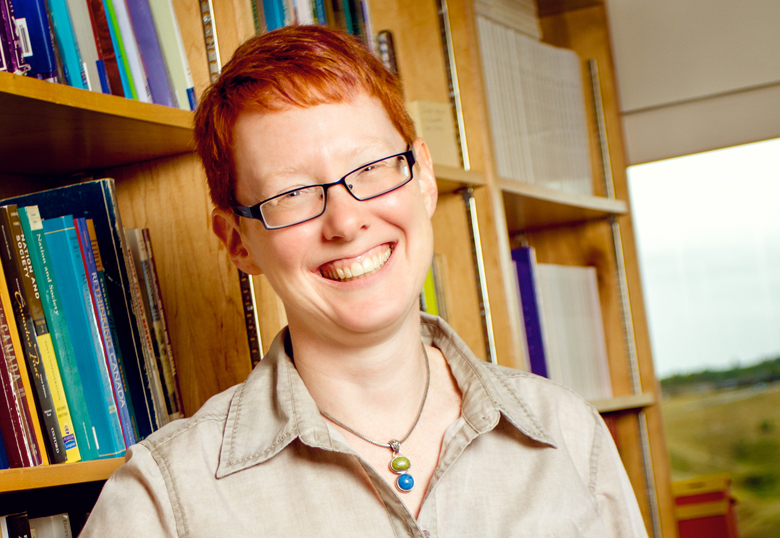
Mar 28 '14 | McManus appointed Board of Governors Teaching Chair
An accomplished researcher, lecturer and author, Dr. Sheila McManus is one of the most respected educators from within the Faculty of Arts and Science and the University of Lethbridge’s Department of History. Dr. Sheila McManus says peer mentoring will be a major focus of her work as a Board of Governors Teaching Chair over the next two years. The University of Lethbridge is proud to appoint McManus to a two-year term as a Board of Governors Teaching Chair, commencing July 1, 2014.
Mar '14 | Prentice Institute for Global Population and Economy Seed Grant Recipients
Prentice Institute Research Affiliate William Ramp as principal investigator and Trina Filan as co-investigator were awarded a Prentice Seed Grant in March of 2014. The title of their project, Mapping Social and Organizational Networks within the Lethbridge, Alberta Food System. With the assistance of the seed grant, this project will essentially help community members engage in developing and strengthening the local food system to identify points of commonality, collaborate in effective knowledge and skill sharing, and identify resource needs and avenues for filling those needs.
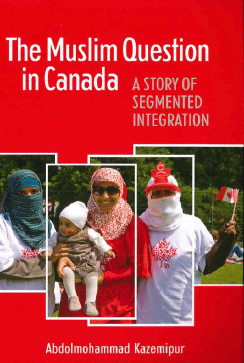
2014 | Prentice Research Affiliate Abdi Kazemipur's new book
To those who study the integration of immigrants in Western countries, both muslims and Canada are seen to be exceptions to the rule. Muslims are often perceived as unwilling to integrate, and Canada is portrayed as a model for successful integration. Kazemipur explores the intersection of these two types of exceptionalism, revealing the systematic deficiencies that must be addressed to avoid the European scenario in Canada. A fresh account of the lives and experiences of Muslim immigrants in Canada, this book gets at the roots of the so-called Muslim question in Canada. Printed in Canada, UBC Press 2014, The University of British Columbia.
|
|
|
Spotlight on Conferences & Events
8th Annual Chinook Symposium for Chemistry and Biochemistry – September 26, 2014
Call for Abstracts
The Symposium is sponsored by the Department of Chemistry and Biochemistry at the University of Lethbridge. The mandate of the symposium and associated poster prize is to recognize undergraduate and graduate students performing original research in the Department of Chemistry and Biochemistry. All students who have participated in research in the Department are encouraged to participate. To particularly encourage junior students in their research endeavors, the Chinook Poster Prizes have been established at the undergraduate and Master’s levels.
Registration OPENS August 15 and CLOSES September 14, 2014.
For further information contact the organizers, Rene Boere, or HJ Wieden.
Go To Top
|
|
|
Students | What are They Up To?
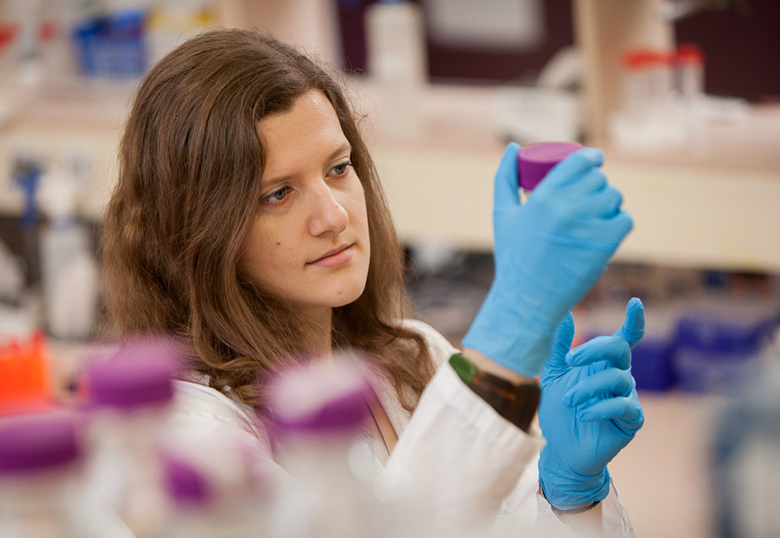
September 8 '14 | University of Lethbridge master’s student receives Alberta Cancer Foundation research studentship award
University of Lethbridge master’s student, Anna Kovalchuk (BSc ’14), has been awarded the 2014 Dr. Cyril M. Kay Graduate Studentship from the Alberta Cancer Foundation.

August 12 ' 14 | Microsoft Imagine Cup experience opening doors for U of L students
Team claVision, consisting of Hossein Naseri, left, Mohammad Akbari and mentor Dr. Howard Cheng, are preparing to go to market with their revolutionary software.

June 24 '14 | Alumnus Khan named one of RBC Top 25 Canadian Immigrants of 2014
University of Lethbridge alumnus Manwar Khan (BSc ’07) is being recognized as one of the RBC Top 25 Canadian Immigrants of 2014.
Khan, a father of twins, has been an active community advocate against violence since witnessing and intervening to stop a deadly attack against a fellow commuter on an Edmonton LRT train in December 2012.
Khan, a father of twins, has been an active community advocate against violence since witnessing and intervening to stop a deadly attack against a fellow commuter on an Edmonton LRT train in December 2012. Since then, he has organized a number of anti-bullying rallies across the province and worked to empower citizens to take a stand against violence.
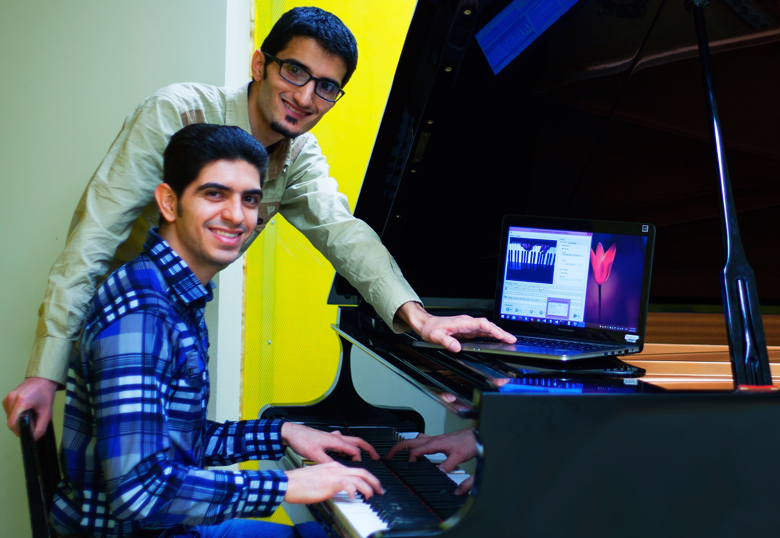
June 10 '14 | Team claVision advances to World Finals of Microsoft Imagine Cup
The University of Lethbridge’s Team claVision is off to the World Finals of Microsoft’s Imagine Cup competition, earning a trip to Seattle, WA at the end of July with the opportunity to win $50,000 and a meeting with Bill Gates. Students Mohammad Akbari (seated) and Hossein Naseri have taken claVision to the World Finals of the Mircosoft Imagine Cup competition.
May 23 '14 | Undergraduate student earns prestigious summer school appointment
Matthew Robbins, a University of Lethbridge undergraduate student majoring in physics, is one of only 20 international students selected to attend the Undergraduate School on Experimental Quantum Information Processing (May 26 to June 6, 2014) at the University of Waterloo.
May 23 '14 | Convocation, a time for celebration & reflection
It was the night before a big exam, and Benjamin Young, then a second-year student at the University of Lethbridge, was burning the midnight oil, struggling to understand a concept that would be covered the next day. It was at that unlikely moment he looked up and saw the professor for the class walking down the hall.
“It was the middle of the night, but I flagged him down and asked him a question. Despite the time, he sat there with me for probably half-an-hour to 45 minutes to help me understand the subject,” recounts Young. “Because of his help, I did great on the test the next day.”
The scene easily ranks beside those in movies like Mr. Holland’s Opus and it will always stick out in Young’s mind. Even so, it was not something that surprised him. Young explains that while the example was memorable, it really was just a reflection of the entire five years he’s had at the U of L.
May 14 '14 | International leader Johnson named Distinguished Alumnus of the Year
Considered an international leader in the development of fuel waste technology, University of Lethbridge alumnus Lawrence Johnson (BASc (BSc) ’78) has been named the University of Lethbridge Alumni Association’s 2014 Distinguished Alumnus of the Year. Lawrence Johnson’s clear and innovative approach to fuel waste technology has established his position as an international leader in his field.
March '14 | Peter Kellett, a Prentice Institute PhD student was officially awarded the first SED Scholarship in Edmonton at the Kalbach Conference where he presented his research paper. The awarding of scholarship funds by the Society of Edmonton Demographers to the Prentice Institute for graduate studies in Population and Demography ia a welcome indication of the Prentice Institute's growing prominence in Population Studies.
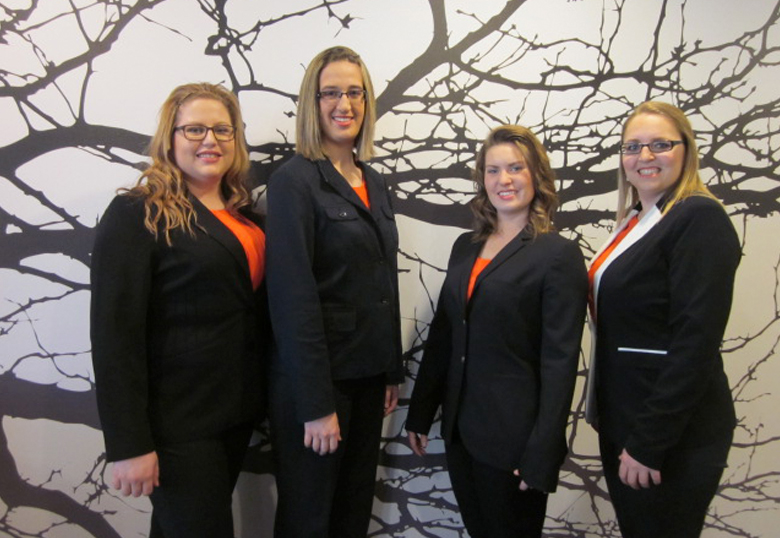
Apr 16 '14 | Collaborative effort leads to win in Agribusiness Case Competition
An interdisciplinary group of University of Lethbridge students showcased their problem solving and presentation skills recently, earning first place at the 3rd Annual International Agribusiness Case Competition held at the University of Guelph. Monica Gorham (Management, Calgary, Alta.), Rebecca Joseph (Agriculture Studies, Lamont, Alta.), Phyllis MacCallum (Agriculture Studies, Vankleek Hill, Ont.) and Lara de Moissac (Agriculture Studies, Edmonton, Alta.) were presented with a case study that proposed using insects as a fourth protein source for both human consumption and livestock feed given the global issues of population increase combined with declining water and land resources.
Go To Top
|
|
|
Open House
The University’s 2014 Open House Event will take place on Saturday, 4th October, 2014 in the 1st Choice Savings Centre from 1-3pm. This event, organized by the Office of Recruitment and Student Life, attracts high school students who are planning ahead for their university career. Approximately 340 interested, prospective students attended last year, with parents and family members. The event provides potential students an opportunity to get to know the university, to learn about various disciplines and degrees, and to apply to the University for Early Admission. This will provide you with a great opportunity to showcase your program and we look forward to seeing you all there!
Prospective students frequently have questions about what specific courses are like and the career paths for particular majors. Having faculty and current students available to answer these kinds of questions will help promote your department’s offerings and will enable participants to make informed choices once they do become U of L students.
Thank you for your support and interest in this event. We are thrilled that so many of you will be participating this year and look forward to seeing you there. Please direct any questions to Diana Young.
Go To Top
|
|
|
Calendar
Upcoming Events
“Exceptional Circumstances: Climate Change and Governance”
Presenter: Nico Stehr, FRSC, Karl Mannheim Professor of Cultural Studies at the Zeppelin University, Germany and International Research Affiliate of the Prentice Institute
Tuesday 16 Sept 2014
12:00 - 1:30 pm
L1102 (Prentice Boardroom)
A large gap exists between what we know and the actions we take with respect to climate change. This is seen by some as an “inconvenient democracy.” The gap between knowledge and action gives rise to a couple of assertions. On the one hand, opposition between advances of specialized knowledge and the commitment of individuals to change their behaviour leads to the diagnosis of an “inconvenient mind.” The failure of large social institutions to respond in a timely fashion to the advances of climate change knowledge leads to a diagnosis of “inconvenient social institutions.” The dual gap between knowledge and action -- at the individual and collective level – implies an “inconvenient democracy.” Climate scientists and other scholars may be convinced that curtailing democratic liberties is the appropriate political
frame within which climate change policies must be enacted.
Bring your lunch, sit back and enjoy!
Moderator: Susan McDaniel Ph.D., FRSC, Director, Prentice Institute & Canada Research Chair in Global Population & Life Course, Prentice Research Chair & Professor of Sociology
*Prentice Institute has gone GREEN! Please bring your own travel mug and/or water bottle, coffee/tea/water will be available.
Thank you
Women Scholar Speaker Series fall reception
Fri, Sep 19, 2014 12:00 pm to 1:30 pm
The Women Scholars Speaker Series is pleased to present our annual Fall Opening Reception on Friday, September 19, 2014 from 12 - 1:30 p.m. in Galileo's.
We hope you can join us to catch up with other female scholars within the university. We will be announcing our line-up of events for the year, as well as holding a PechaKucha. Please be sure to invite any newcomers to our academic community.
Make sure you bring something to put on our “Brag Table” regarding accomplishments in the past year! If you have any questions or are unable to attend but would like to display something, please contact either Andrea Amelinckx or Anne Dymond.
Room or Area: Galileo's
A Lecture by Tanya Murray Li
Wednesday, September 24, 2014 - 3:00pm - 5:00pm
Event Location: D-634 (University Hall)
Presentation: Land's End: Capitalist Relations on an Indigenous Frontier
Guest Speaker: Tania Murray Li
Date: Wednesday, September 24, 2014
Location: D-634 (University Hall, University of Lethbridge)
Learn more.
PUBlic Professor Series Dates:
25-Sep-14
Robbin Gibb
Theme: Health
Topic: The Forgotten Parent: The Importance of Fathers and Their Experience on the Brain Development of their Children
Experience has a profound effect on the developing brain. It is known that Mothers have a tremendous influence on their babies but the role of Fathers is less well studied. The fundamentals of brain development and the science of epigenetics: the study of gene environment interactions will be summarized. The paternal influence on both placenta and brain development will be reviewed. It is clear, that a Father’s lifestyle prior to conception has a profound influence on their offspring. It is time health care professionals and policy makers were made aware that they are ignoring half of the parental equation. By revising societal views on paternal contributions to offspring development we can effect changes in health policy targeting public awareness. A more holistic family focus will benefit children by improving both mental and physical health
outcomes.
23-Oct-14
Patrick Wilson
Theme: Culture
Topic: Indigenous Territories and the Rights of Nature in Amazonian Ecuador
20-Nov-14
Ian MacLachlan
Theme: Sustainability
Topic: Global Livestock and Meat Trends
22-Jan-15
David Naylor
Theme: Sustainability; Access/Opportunity
Topic: Why Invest in Space Exploration
26-Feb-15
John Harding
Theme: Culture
Topic: Buddha’s World Tour: Global Buddhism in the Modern Era
19-Mar-15
Michelle Hogue
Theme: Culture; Access/Opportunity
Topic: Two-Eyed Seeing: A Different Vision for Teaching Aboriginal Learners Science and Mathematics
Go To Top
|
|
|
|
|
|